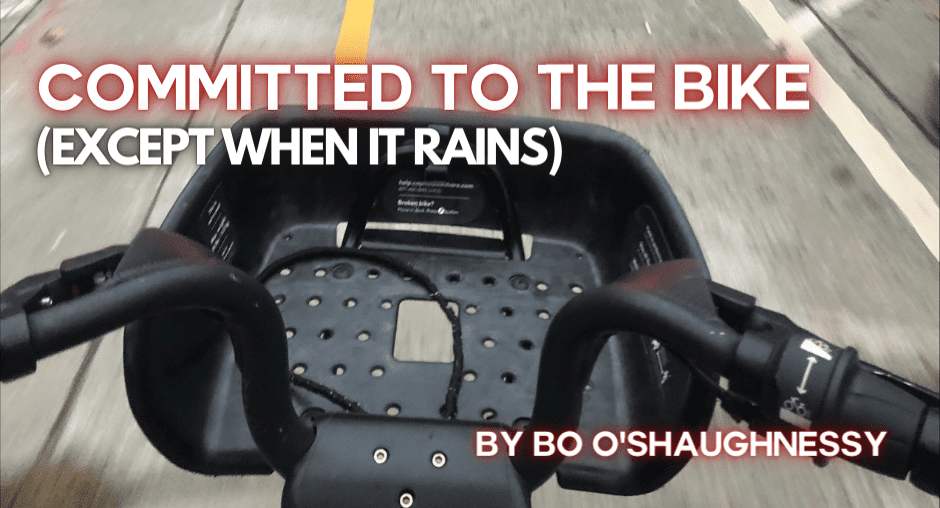Committed to the Bike (Except When it Rains)

Editor’s Note: DC Service Corps volunteer Bohdan O’Shaughnessy shares his decision to change his daily commute and how he “reframed” his bike rides to be more mindful and spiritually fulfilling.
Around 6:20 in the morning and then again at 4 in the afternoon, you can find me marching around Brookland in my light blue scrubs, a backpack, and a bike helmet I found in the Casa basement—with no bike in sight. That is because I am either on my way to or from the city bike station, where my daily commute sits, docked and ready. Back in August, I started my year taking the H2 or H4 bus across town each day. A few weeks in, however, I made the switch over to “DC Capital Bikeshare.” DC’s bus system is great, but these lines come at inopportune times and are quite slow, especially coming home in rush hour traffic. Also, at a flat rate of $2.00 per ride, riding the bus twice daily adds up. Taking a city bike has proved more cost-effective—with unlimited 45-minute rides for a yearly rate—and efficient, as DC’s great bike lanes often mean the main factor influencing whether I am timely is simply how hard I’m willing to pedal…
When it comes to the actual commute, riding the bus is a much more relaxing and less effortful option. I have at least a half hour to read, pray, eat, call a friend or family member, you name it. Hopping on a bike—particularly one built for durability, not speed—at the crack of dawn or amidst an afternoon slump was initially not as attractive. Thus, I needed to find a way to look forward to these rides. My first idea was to listen to music or a podcast. However, I noticed when I was trying to listen to “Bible in a Year” or an episode on medicine’s latest news, I was rarely able to grasp what I listened to and was often left feeling unsatisfied, no slight to Fr. Mike Schmitz. With headphones in, I wasn’t practicing mindfulness, a goal of mine for this year. I wasn’t engaged in the present moment: the push of my feet against the pedals, the sky slowly brightening with the morning sun, or the sounds playing in my ears. It was time to try a new option.
Neuroscience, the brain, and the mind are subjects I studied in college and continue to interest me. This whole process of trying to enliven these bike rides is a psychological process called reframing. It is a powerful cognitive technique that involves finding opportunity in situations that give us stress or fear or a challenge. For example, in this Lenten season, let’s consider fasting. We can see fasting as an undesirable chore required of us because the rulebook says so, or we can reframe this practice as a way to experience Christ and to draw upon His spiritual strength in a special way. Thinking about fasting in this manner transforms it into a practice bringing spiritual growth and joy. I think of reframing as very similar to the Jesuit notion of “Finding God in All Things.”
Now as I pedal, I envision these bike rides as my daily workout. Without headphones, it is also a practice of mindfulness and an opportunity to offer up the toil and grind (I’m looking at you Kenyon Road Hill!) for any intentions that are on my mind that day. Whether it’s a cool, crisp morning dressed in quiet serenity or a bright and sunny afternoon bustling with the sounds and movement of traffic, my commute went from a “have to do” to a “get to do” part of my day.
Question for Reflection: How can you reimagine a hum-drum part of your day to bring you joy?
Tagged in:

